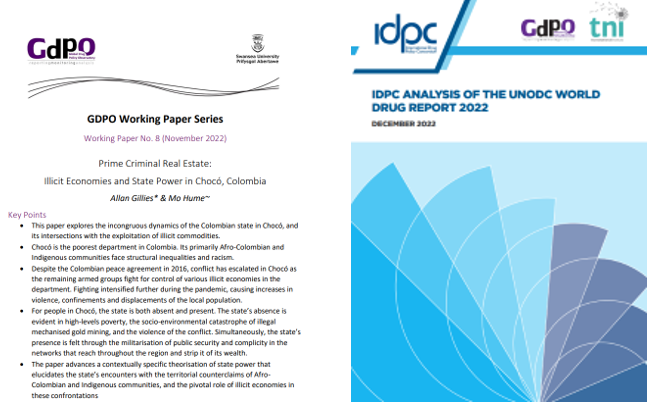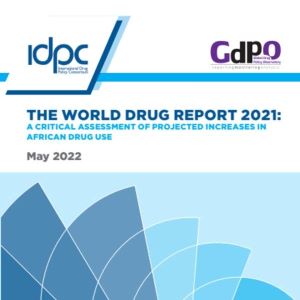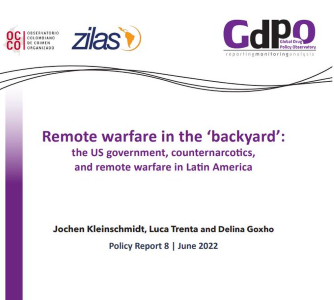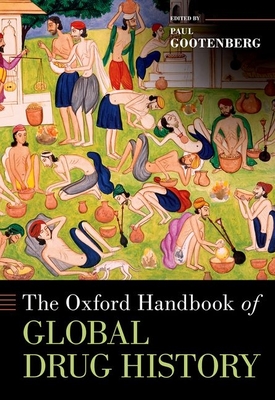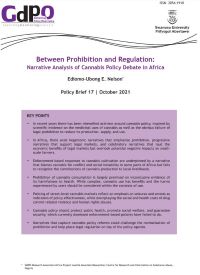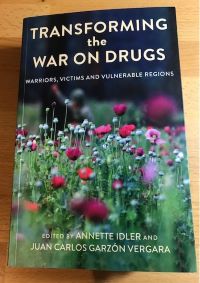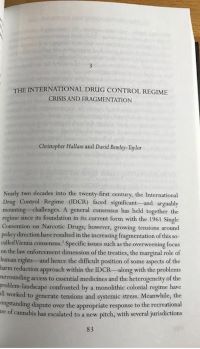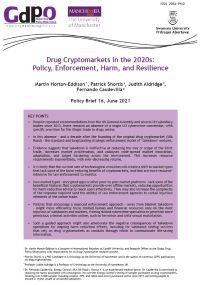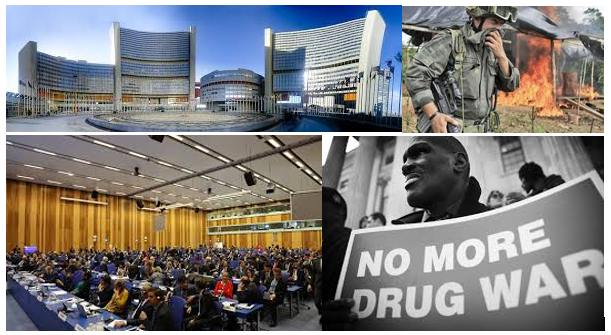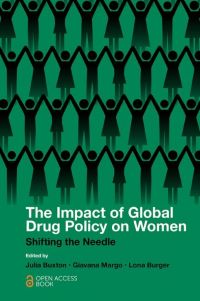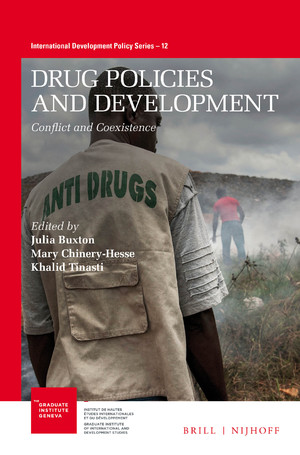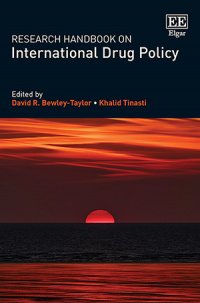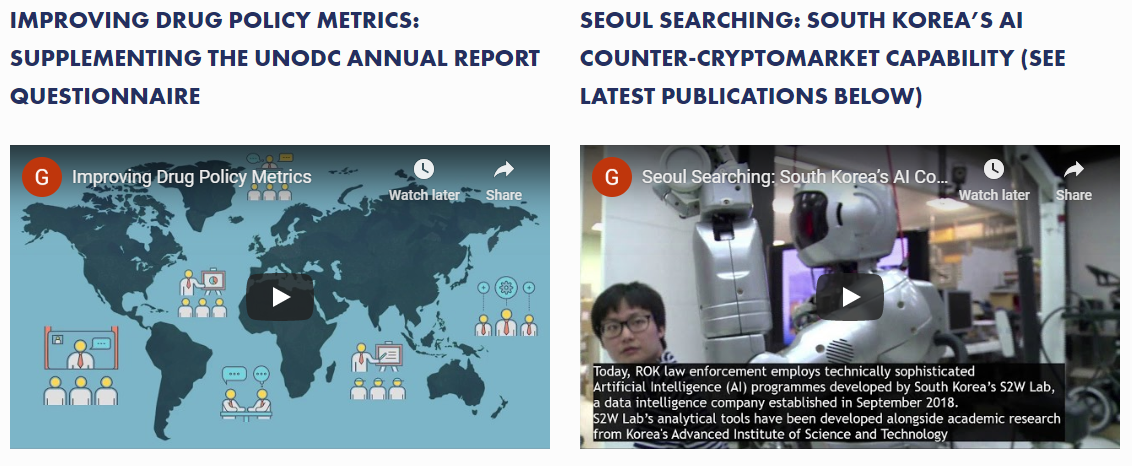The year started with the delivery of a long-planned event, the OSF supported “Human Security and Drug Policy in Afghanistan” Executive Programme. Taking place in New Delhi, 27-31 January 2020, this was part of a trilateral initiative involving the GDPO, the Afghan Research and Evaluation Unit (AREU, Kabul, Afghanistan) and the TERI School of Advanced Studies (TERI-SAS, New Delhi, India).
Delivered at the TERI-SAS campus, the Programme brought together nearly 30 Afghan women and men working in vital areas on drug policy. In addition to Dave, academic director and overall project lead, the Executive Programme faculty team included AREU Deputy Director Dr Nishank Motwani, Dr Chandan Kumar (TERI-SAS), Dr David Mansfield (Private Consultant), Ross Eventon (University of Rosario, Colombia & GDPO research associate), Sai Lone (Myanmar Opium Farmers’ Forum), Tripti Tandon (Lawyers Collective, New Delhi), Dr Ravindra Rao (National Drug Dependence Treatment Centre, New Delhi), and Dr Kasia Malinowska (Global Drug Policy Program, Open Society Foundations & The New School, USA). Visit the AREU website for a full account of the week, but in brief we’re pleased to report that the Programme was a great success with all participants leaving India enthused by what they had learned, discussed and shared. Indeed, framed deliberately a knowledge exchange rather than knowledge transfer initiative – the Programme enabled participants and faculty to learn a great deal beyond their own specialisms with Afghan colleagues keen to apply aspects of the course when they returned to their various roles in Kabul and beyond.
In early March, several members of the GDPO team attended the 63rd Session of the Commission on Narcotic Drugs (CND) in Vienna with everyone – to varying degrees – presenting Observatory related research. On Thursday 5th March Dave was a panellist on a side-event, Next Steps for Data Collection on Drugs: Experiences from United Nations Agencies. Organized by the Governments of Mexico and Switzerland, Centro de Estudios Legales y Sociales, the European Union, the GDPO, IDPC, the Office of the High Commissioner for Human Rights, the United Nations Development Programme, and the World Health Organization, other speakers included Zaved Mahmood, (OHCHR), Vladimir Poznyak, (WHO), and Angela Me (UNODC). The session was chaired wonderfully by H.E. Ambassador Alicia Buenrostro Massieu, Permanent Mission of Mexico to the International Organisations in Vienna. Relating directly to the GDPO Metrics project, the side event highlighted the ways in which the new version of the Annual Report Questionnaire (ARQ), adopted by the CND in March 2020, can be complemented with datasets from other stakeholders, including other UN agencies, UN human rights bodies and civil society. As with all the side-events mentioned here, for a short account see the UNODC’s new CND side-events report and the CND blog
In the afternoon, attending the CND for both PhD research purposes and as a representative of the Vienna NGO Committee, Swansea University-GDPO doctoral candidate Heloisa Broggiato spoke on work related to her thesis at a side event titled, Accelerating support for increasing access to controlled medicines while preventing diversion and non-medical use. This comprised a distinguished panel, with other speakers including the Australian and Belgian Ambassadors to Vienna, a member of the INCB, the Deputy Minister of Health of the Russian Federation, a representative from the WHO as well as speakers from the Union for International Cancer Control and the IAEA. The event highlighted the importance of a balanced global approach to the issue and appealed to member states to support the UNODC-WHO-UICC Joint Global Programme.
The following morning Martin Horton-Eddison, along with Manchester University colleagues and friends of the Observatory, Prof. Judith Aldridge and Patrick Shortis, spoke at a side event on drug crypto-markets. Joined by Energy Control's inimitable Fernando Caudevilla (aka Silk Road's 'Doctor X'), Drug CryptoMarkets Beyond 2020: Policy, Enforcement, Harm, and Resilience was sponsored and chaired by the Government of the Kingdom of the Netherlands, and co-sponsored by Energy Control, together with the IDPC and the GDPO. The presentations and Q&A augmented the knowledge-base of attendees in a fast moving and dynamic area of concern for the international community. Moreover, showcasing ongoing research from the GDPO’s crypto drug markets project, the event went some way to increasing awareness that there are unintended consequences of law enforcement approaches that aim to take all markets offline, and suggested that enforcing against only the most injurious of substances and vendors whilst also acknowledging the potential harm reducing nature of some online markets may be a useful first step toward an (otherwise absent) internationally agreed approach.
And last but not least, Chris spoke at a side event on Friday 6th March, Heroin and Ibogaine Assisted Treatments in the Era of the Opioids Crisis, which was organized by Nonviolent Radical Party Transnational and Transparty (Transnational Radical Party). Presenting together with Professor Carla Rossi, his analysis was focused on the Heroin Assisted Treatment aspect of the event. Carla, an epidemiologist, argued that governments are under an ethical obligation to provide HAT as a second treatment option directed at those who do not benefit from the conventional substitution therapies using methadone and buprenorphine. Chris’ remarks provided a social and historical context for the treatment, beginning with the so-called ‘British System’ and moving on to the open drug scenes of 1990s Europe, which prompted the Swiss authorities to reconceptualise the prescribing of heroin and to offer a pragmatic, harm-reduction treatment system based at clinics where drug users could inject their prescribed dosage under medical supervision The event was well attended and prompted much interesting discussion. Part of the GDPO’s UN project, Chris’s presentation was linked to the research underpinning a forthcoming Policy Brief on HAT and its reception on the international policy scene, with a special emphasis on the response to the treatment of the UN drug control agencies.
While not in Vienna this year, Axel was also travelling during the quarter. This involved completing some fieldwork for the GDPO GCRF funded project, ‘Cultivating Change,’ in Jamaica in January. Engaging with issues relating to the Observatory’s Africa project, in March he also gave a presentation to officers from the Economic Community of West African States (ECOWAS) in Abuja on the need for research and knowledge generation in the fight against organised crime and illicit trafficking.
In terms of publications, members of the team also had a productive quarter. Within the academic realm, Khalid published ‘International drug control governance: Is a joint UN programme on drugs relevant?’ in the International Journal of Drug Policy Chris had a chapter published in a collection edited by Professors Susanne MacGregor and Betsy Thom, Risk and Substance Use: Framing Dangerous People and Dangerous Places, Routledge 2020. This brings together historical and sociological analyses of the risks associated with the spaces and groups involved in psychoactive drug markets and the policies intended to mitigate them. Chris’ chapter entitled ‘Dangerous Drugs, Dangerous Women: Declassé women, drugs and sapphic sexuality in 1930s London’, concentrates on the experience of modernity in interwar London, and ways in which drugs and their consumers became symbolic of the anxieties and alarm deriving from the rapid social change accompanying the emergence of the modern world. It explores this symbolic role in the formation of both domestic and international drug policy. Axel (with Gary Potter) also had a chapter published in the same book, this one titled ‘Coming out of the Closet: Risk Management Strategies of Illegal Cannabis Growers’. Additionally, Axel co-published (with Sudhanshu Patwardhan, Maria Goretti and Ane Loglo) ‘Divergences and commonalities between the US opioid crisis and prescription medicine mis/use in West Africa,’ in the International Journal of Drug Policy, and (with Ann Ukachi Madukwe) "Tramadol as a pain relieving and physical work performance enhancement medication" in Drugs and Alcohol Today.
In relation to press outputs, Khalid published a couple of articles in the international media: L’Orient-Le Jour (Lebanon), ‘Les conséquences de la classification dépassée des drogues’, and L’Economiste (Morocco), ‘Une autre victime du Covid-19: La politique multilatérale en santé.’

